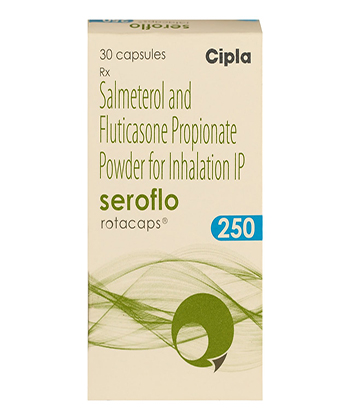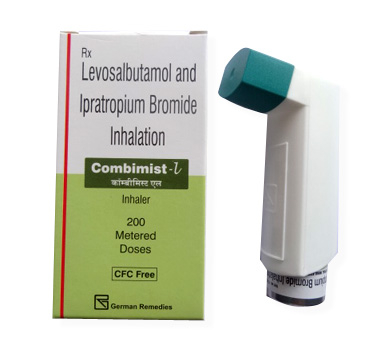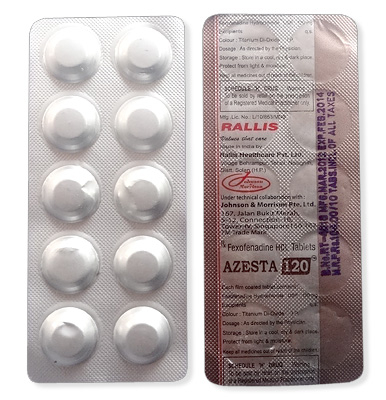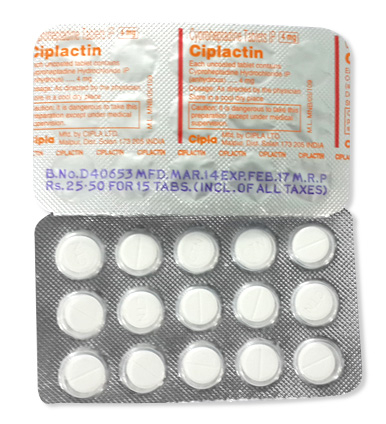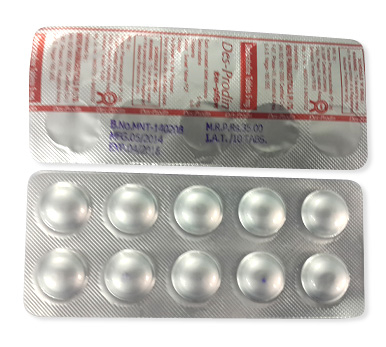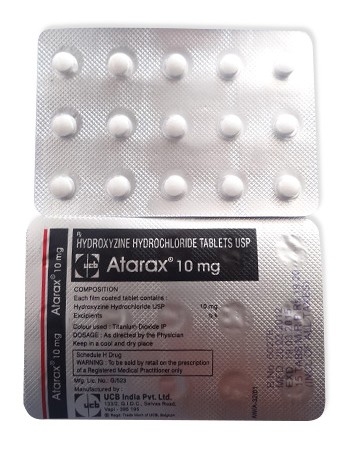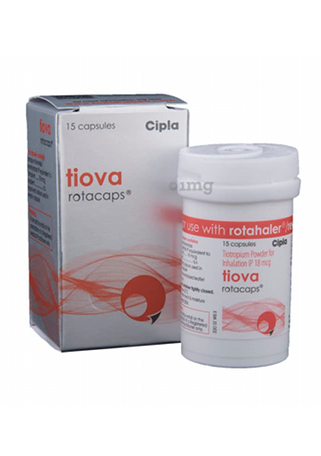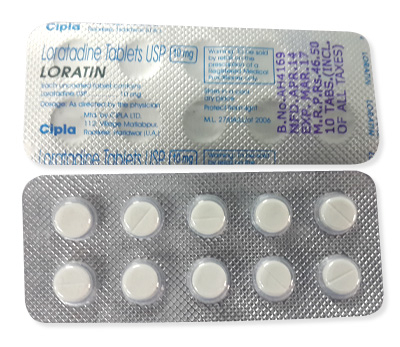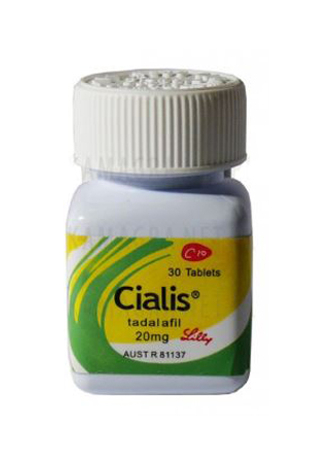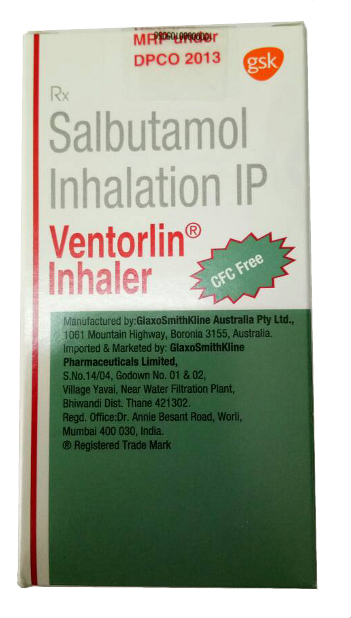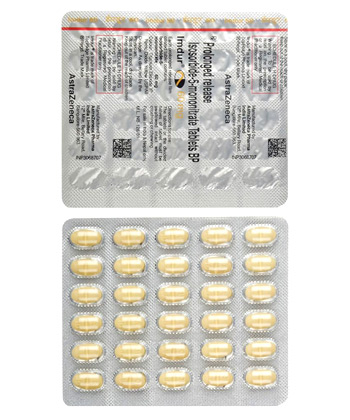Rhinocort
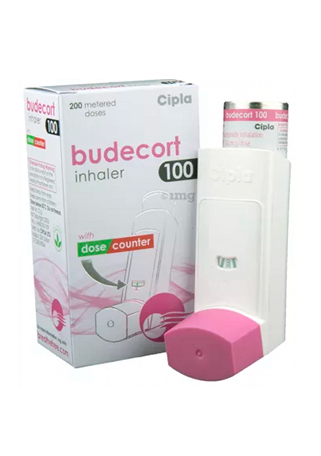
Rhinocort
- In our pharmacy, you can buy Rhinocort without a prescription, with various packaging options available, including 120 or 60 sprays of the nasal spray formulation.
- Rhinocort is used for the treatment of allergic rhinitis. It works as an intranasal corticosteroid that reduces inflammation in the nasal passages.
- The usual dosage for adults and adolescents is 64 mcg (2 sprays of 32 mcg) in each nostril once daily, and for children aged 6-11, it is 32 mcg in each nostril once daily.
- The form of administration is a nasal spray.
- The effect of Rhinocort may begin to work within a few days, with maximum benefits potentially reached in up to two weeks.
- The duration of action typically lasts for 24 hours, necessitating once-daily administration.
- There are no specific alcohol warnings associated with Rhinocort, but it is always prudent to consult with your healthcare provider.
- The most common side effects include nosebleeds, nasal irritation, dryness, and sore throat.
- Would you like to try Rhinocort without a prescription?
Basic Rhinocort Information
| INN (International Nonproprietary Name) | Budesonide | |------------------------------------------|------------| | Brand names available in Canada | Rhinocort® Aqua | | ATC Code | R01AD05 | | Forms & dosages | Nasal spray, 32 mcg per spray, available in 60 or 120 spray bottles | | Manufacturers in Canada | Main: AstraZeneca; Generics: Mylan, Teva, others | | Registration status in Canada | Approved in multiple jurisdictions including Canada and EU | | OTC / Rx classification | Available OTC in Canada and certain other regions; Rx in others |Budesonide, a medication commonly known as Rhinocort® Aqua, acts primarily as a nasal corticosteroid. This inhaled glucocorticoid is notable for its anti-inflammatory properties, making it an effective treatment for allergies, particularly allergic rhinitis. Rhinocort is presented in a convenient nasal spray format, delivering 32 mcg per spray. It comes in bottles containing either 60 or 120 sprays, catering to different user needs. AstraZeneca manufactures the original formulation, while several generics from manufacturers like Mylan and Teva are also available, offering options for patients. The product is well-registered in various jurisdictions, confirming its approval not only in Canada but also in regions like the European Union. For those concerned about obtaining Rhinocort, it can typically be found over-the-counter in Canada, although certain countries may require a prescription. Staying informed about its regulatory status is key for users needing reliable allergy treatment options. More details about product authenticity can be verified through local health agencies or pharmacies.
Pharmacology of Rhinocort
Understanding how Budesonide works is crucial for those considering this medication. In simple terms, Rhinocort reduces inflammation in the nasal passages, making breathing easier during allergy season or when facing respiratory irritants. On a clinical level, Budesonide functions as a corticosteroid, inhibiting the inflammatory response. It does this by suppressing the migration of leukocytes and decreasing cytokine production, key players in the body’s inflammatory responses. Patients may initially notice some relief, but the full effect can take up to two weeks. Budesonide is primarily metabolized in the liver, with an elimination half-life of approximately 0.5 to 2 hours. This rapid metabolism allows for effective symptom management without significant accumulation in the body. Interactions with other substances are minimal; however, it is advisable to avoid grapefruit juice, which may affect the medication's efficacy. Understanding these pharmacokinetics helps patients use Rhinocort safely and effectively in their allergy management.
Indications for Rhinocort
Budesonide is predominantly indicated for the treatment of allergic rhinitis, aligning with guidelines established by major regulatory bodies like the EMA and FDA. While it is predominantly used for allergies, some physicians may prescribe it for off-label uses based on their clinical judgment. When considering special populations, Rhinocort is recognized as appropriate for pediatric patients aged six and older, with appropriate dosage adjustments. The elderly generally do not require specific adjustments, although monitoring for any side effects is prudent. Furthermore, during pregnancy, Budesonide falls under Category B, which indicates that while risk cannot be ruled out, it is typically considered safe. Consulting with a healthcare provider is always a wise choice when accessing medications during pregnancy or in special populations.
Dosage and Administration
Correct dosing is vital for achieving optimal results with Rhinocort. For adults and adolescents aged twelve and up, the typical dosage is 64 mcg, which equals two sprays into each nostril once daily. For younger children, ages six to eleven, a dosage of 32 mcg in each nostril once per day is recommended. For effective treatment of seasonal allergies, daily use during the allergy season is necessary. Users should store the nasal spray at room temperature, away from sunlight, ensuring the integrity of the medication. Transporting Rhinocort should also be conscientious; the bottle should be kept upright, and users should avoid freezing the product. By following these guidelines, patients can maximize the efficacy of their allergy treatment while minimizing risks.
Safety & Warnings for Rhinocort
Prior to using Rhinocort, it’s essential to understand its safety profile and potential drawbacks. Patients often worry about allergies and side effects, making this understanding crucial for effective medication use.
Contraindications
Rhinocort should be avoided by anyone with:
- Absolute Contraindication: Hypersensitivity to budesonide or any other ingredient in the formulation.
- Relative Contraindications: A history of nasal surgery or active infections, such as tuberculosis, requires caution, as it can impede healing or worsen conditions.
Side Effects
Commonly reported side effects include:
- Nosebleeds
- Nasal irritation
- Sore throat
While rarer, serious side effects such as anaphylactic reactions or vision changes have been noted, reinforcing the need for monitoring during treatment.
Special Precautions
Particular care should be exercised in specific populations, such as:
- Pregnant women
- Individuals with liver or kidney impairment
These groups may face increased risks of adverse effects, warranting medical consultation before starting Rhinocort.
Black Box Warnings
No black box warnings currently apply to Rhinocort, however, ongoing vigilance is recommended to ensure safe use.
Patient Experience with Rhinocort
When considering medication, hearing about others' experiences can be powerful. Many patients turn to online platforms for insights.
Reviews from Sources
Average ratings on sites like Drugs.com indicate that Rhinocort is generally effective for allergy relief. Users appreciate its fast action and minimal side effects. On Reddit, discussions reveal varied experiences with effectiveness and occasional irritation, while WebMD users highlight the product's user-friendly application.
User Feedback from Forums
In Facebook communities, patients often share their experiences with Rhinocort, noting its significant impact on their quality of life by reducing allergy symptoms. Insights culled from these discussions emphasize the real-life benefits, making it easier for potential users to engage with the medication.
Insights
Common themes regarding Rhinocort include:
- Variations in the duration of treatment
- Diverse side effects reported
- Challenges in adhering to medication schedules due to symptom fluctuations
This highlights the importance of realistic expectations when starting Rhinocort as part of an allergy management plan.
Alternatives & Comparison to Rhinocort
Rhinocort isn't the only option available for allergy relief. Several alternatives can also help manage symptoms effectively.
Common Alternatives in Canada
- Flonase® (Fluticasone)
- Nasacort® (Triamcinolone)
Comparison Table
| Product | Price | Effectiveness | Safety | Availability |
|---|---|---|---|---|
| Rhinocort | [Price] | High | Generally safe | OTC |
| Flonase | [Price] | High | Generally safe | OTC |
| Nasacort | [Price] | Moderate | Generally safe | OTC |
Preferences Among Local Doctors
Many healthcare professionals show a preference for Rhinocort when managing long-term use, particularly among patients who require consistent allergy control. This endorsement from medical experts adds an extra layer of trust when considering treatment options.
Market Overview for Rhinocort
Knowing where and how to obtain Rhinocort is vital for patients seeking relief from allergy symptoms.
Availability in Pharmacies
Rhinocort is widely accessible at major pharmacy chains, including Catena and HelpNet, making it convenient for patients to find.
Average Price in CAD
The approximate price for Rhinocort ranges around [insert average price], making it a competitive and accessible option compared to other similar medications.
Packaging Type
Patients can find Rhinocort packaged in either 60 or 120 sprays, catering to different usage needs according to the severity of their symptoms.
Demand Patterns
The demand for Rhinocort typically peaks during allergy seasons. Additionally, there has been an increase in its use post-COVID among patients with chronic conditions, as maintaining respiratory health has gained newfound importance.
Research & Trends in Rhinocort Use
Recent meta-analyses spanning from 2022 to 2025 provide compelling evidence that Rhinocort, a brand for budesonide nasal spray, is effective in treating allergic rhinitis in both adults and children. These studies highlight Rhinocort’s swift action in alleviating symptoms such as nasal congestion, sneezing, and runny nose, affirming its status as a reliable option for managing these distressing allergy symptoms.
Interestingly, ongoing research is also delving into the potential of Rhinocort for treating non-allergic rhinitis. These investigations aim to explore whether budesonide can offer relief for individuals who suffer from nasal symptoms due to other triggers, thus expanding its therapeutic scope.
It’s worth noting that the original patent for Rhinocort has expired. This has led to a surge in generic versions of budesonide nasal spray entering the market. Many local pharmacies now stock these generics, often at a more affordable price point, making treatment easier to access for a larger population. Patients seeking relief from nasal allergy symptoms can now find options that fit their budget without compromising on quality.
Guidelines for Proper Use of Rhinocort
Understanding how to use Rhinocort correctly can maximize its effectiveness. For optimal results, it’s recommended to administer the spray once daily into both nostrils. Consistency is key, so picking a specific time each day can help establish a routine.
- Avoid combining Rhinocort with alcohol or other nasal sprays to minimize the risk of irritation.
- Store the nasal spray in a cool, dry location, out of direct sunlight, and ensure it’s not frozen.
- Before using, shake the bottle gently to ensure proper mixing.
Common mistakes can hinder treatment efficacy. For instance, some may forget to shake the bottle, while others might not realize the importance of the correct dosage. Always refer to the patient leaflet for detailed instructions and consult a healthcare professional if uncertain about any aspect of usage. This ensures a clearer understanding and adherence to guidelines.

